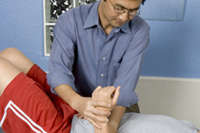- Improved physical fitness
- Skill and motor skills development
- Provides regular, healthful physical activity
- Teaches self- discipline
- Facilitates development of student responsibility for health and fitness.
- Influence moral development, leadership, cooperate with others
- Stress reduction – an outlet for releasing tension and anxiety
- Strengthened peer relationships
- Physical education can improve self-confidence and self-esteem
- Respect - PE helps you respect your classmates, teammates, and your body
- Experience in setting goals
- Improved academics
Required Reading:
Chapter 15 in the textbook
Required Web Activities:
Study definitions in this field
Explore Topics of study in this field
Learn about the standards that PE teachers use to develop their programs
Explore the elements of Quality PE (click on the teacher pledge to read about the characteristics of a quality PE teacher)
Listen to professionals in this field
Additional Study Resources: Visit the textbook web resources site and work on the activities provided for this chapter. These are VERY helpful tools to help prepare for your exam and assist in your understanding of the material.
 Students will show that they know this information by successfully passing exam #1
Students will show that they know this information by successfully passing exam #1
- Examine the definition, content, goals, research themes of Physical Education
- Explore your personal characteristics and experiences in Physical Education and examine their impact on your desire and/or ability to participate in the goals of the discipline
- Apply your understanding of current trends and societal contexts to future trends and contributions of Physical Education

© 2013 Board of Regents of the University of Wisconsin System •
Please YOUR INSTUCTOR with questions, ALl rights reserved.
